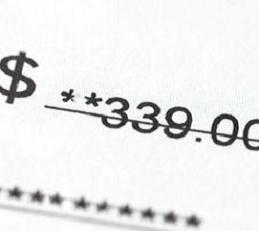Commercial leases
What is a commercial lease agreement? A commercial lease is a legally binding contract made between a landlord and a business tenant. The lease gives a tenant the right to use certain property for a business or commercial activity for a period of time in exchange for money paid to the landlord.
A key piece of legislation to be aware of when it comes to commercial property to lease is the Landlord and Tenant Act. A commercial property lease usually continues until its end date unless you include a clause to end it earlier. They are available for anyone to use without charge.
This text provides a practical guide to occupational leases for commercial property. Following the chronology of a transaction, Cockburn discusses clauses which regularly occur in commercial leases , highlighting the points each side needs to insist upon in negotiations and providing optional revisals for those acting for tenants. A full list of MCL documents is contained on the All Documents page but the simplest way to reach the current version of each document is via the “Leases” and “Asset Management” links in the menu at the top of the screen. Renewing your commercial property lease Most tenants have the right to renew their business lease when it ends.
However, there are certain tenants who do not have this right. If your business is successful and your current lease is about to expire, you may want to consider buying commercial space or industrial space rather than continue leasing space for your small business. Business tenancies.
Both leasing a business and buying a commercial space have their ups and downs.
Landlords need income from rent and they have to control costs to assure a profit. Tenants want to peg their rental costs as closely as possible to manage their own profits and losses. The process of entering into a new lease should be carefully considered to avoid future problems. Whilst some matters are typically addressed for example rent payments, other matters may sometimes be overlooked. Additionally, this type of agreement is just limited towards the specific renters looking for business properties and commercial reasons.
Set out below are some options available relating to commercial leases and information gathered from speaking with others in the industry. Tenants must check their individual leases, as all leases are different, but the below is the “usual” position under leases generally. Find out how we can help you.
Our expert commercial property solicitors will give you clear, concise and practical advice tailored to suit you. The tenant pays a monthly amount to the landlord in return for being allowed the right to use the premises for their business purpose. For many businesses, having a commercial premises is an essential element of running a successful business. For this reason, businesses take great care in selecting a premises – choosing the correct location with the required facilities and at the right cost. It is, therefore, fundamental that when a commercial lease is coming to an en certain steps are taken to ensure that tenants wishing to continue occupation of their business premises do not lose out on their right to so do.
If a commercial lease doesn’t contain an option to break, then the parties are obliged to see it through to the end of its contractual term. This can be damaging for either party. The tenant’s business may be struggling, and they may be unable to make their rent payments, or they may have outgrown their premises.
Tenants of commercial leases are required to return particulars of their lease to the Authority within days of receipt by them of the stamp certificate from the Revenue Commissioners.
Such returns must be filed online. Commercial Leases - Property Services Regulatory Authority. The Authority will be sending out reminders to all leases where no return has been made.

Comments
Post a Comment